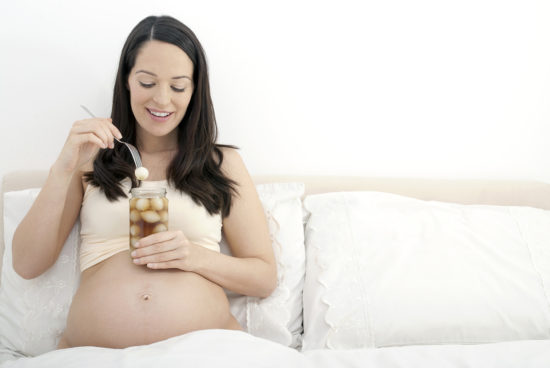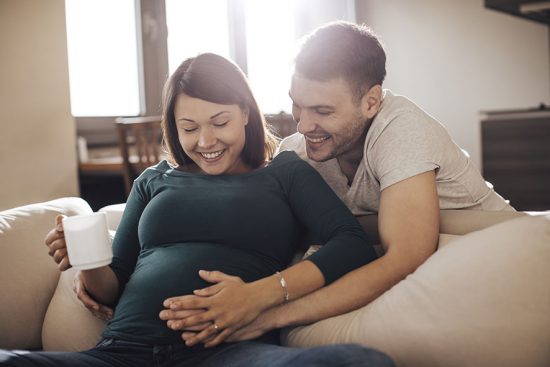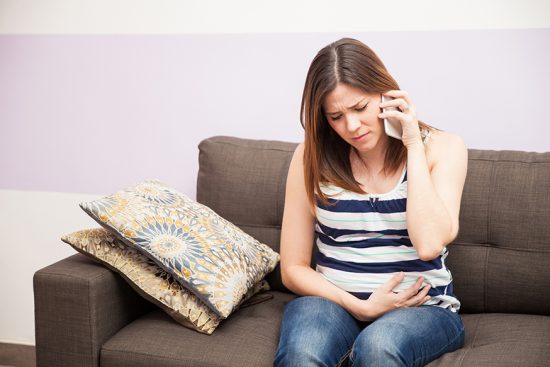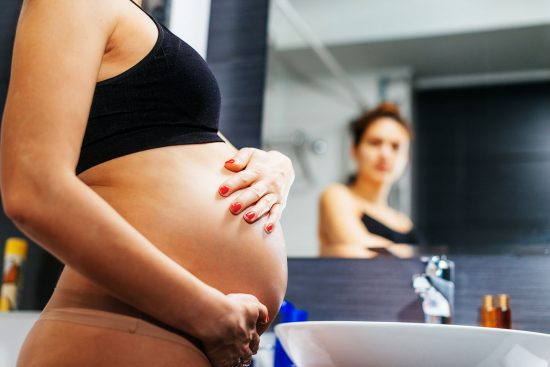There’s nothing like pregnancy for old wives’ tales. Here’s what to believe – and what to take with a pinch of salt (or gherkin, craving dependent)…


The verdict: True. Sleeping on your left is better than your right as it lets blood flow well to the placenta. It also helps with swelling, as it helps your kidneys eliminate waste efficiently so you get less ankle, feet and hand swelling.
Sleeping on your back will also give you backache and press on your bowel, causing constipation and even piles. Falling asleep on your back after 28 weeks can also double the risk of stillbirth.
Don’t worry if you wake up on your back though – the research looked at the position women fell asleep in, as this is the position we keep for longest. If you wake up on your back, just turn over and go to sleep again on your side. You might find our advice on how to get some sleep in pregnancy useful.

The verdict: True. We know – weird, right? But men whose partners are pregnant can get pregnancy-related symptoms themselves. This is called ‘sympathetic pregnancy’ or ‘couvade syndrome’ and no one knows why it happens.
Men usually suffer from physical symptoms like nausea, heartburn, abdominal pain, cramps and backaches. They can also experience changes in sleeping patterns, anxiety, depression, reduced libido and restlessness.
The verdict: True. It’s not a good idea to use jacuzzis, saunas, hot tubs or steam rooms when you’re pregnant. This is because you need to avoid the risk of overheating, dehydration and fainting.
If you do use them, your body can’t lose heat effectively by sweating so its temperature rises. Blood flow to internal organs like your brain then decreases then so that you feel faint.
You only need an extra 200 calories a day in the last trimester
The verdict: Myth. When you’re pregnant, you do not need to eat for two, drink full fat milk or increase the amount of food you eat during the first six months of pregnancy. You only need an extra 200 calories a day in the last three months.
A healthy diet is the best thing. Also see our article about exercise during pregnancy to see how it can keep you healthy.

The verdict: Myth. Hormonal changes during the first trimester are the most probable cause of morning sickness. It is very common in early pregnancy.
Several risk factors for morning sickness include having twins or triplets, or a history of morning sickness in previous pregnancies.
Your baby’s sex has nothing to do with it.
The verdict: Myth. It’s a myth that spicy foods can burn the baby’s eyes, resulting in blindness, or causing miscarriages. None of that is true.
The only reason to avoid spicy food is if you’re suffering from heartburn, when the spice could make it worse. Other than that, go and order that Friday night jalfrezi.
Your senses are heightened during pregnancy
The verdict: True. One of the changes that you can notice during early pregnancy is that your senses are heightened. You might hate the idea of certain foods or drinks that you loved before.
Some women even notice a strange metallic taste in their mouth and others have a much stronger sense of smell than normal.
The verdict: Myth. The shape of your bump is determined by the muscle tone in your stomach and the number of babies. It definitely isn’t a predictor of your baby’s sex.

The verdict: Myth. Every bump is different in the same way that every woman’s body is different.
The size of the bump definitely doesn’t indicate the health and wellbeing of the baby.
There is no definition or measure of what a ‘normal’ bump should look like.
The verdict: A strange one but it’s true. Male and female frogs were used to test for pregnancy until the 1950s. They were injected with a women’s urine and if they were pregnant, visible eggs or sperm appeared.
The verdict: Myth. Cravings can be a sign of things your body needs, for example wanting to chew ice can mean a low-iron level. But they aren’t a predictor of your baby’s sex.
The only real predictor in fact is a skilled sonographer and a scan room.
Our support line offers practical and emotional support with feeding your baby and general enquiries for parents, members and volunteers: 0300 330 0700.
We also offer antenatal courses which are a great way to find out more about birth, labour and life with a new baby.